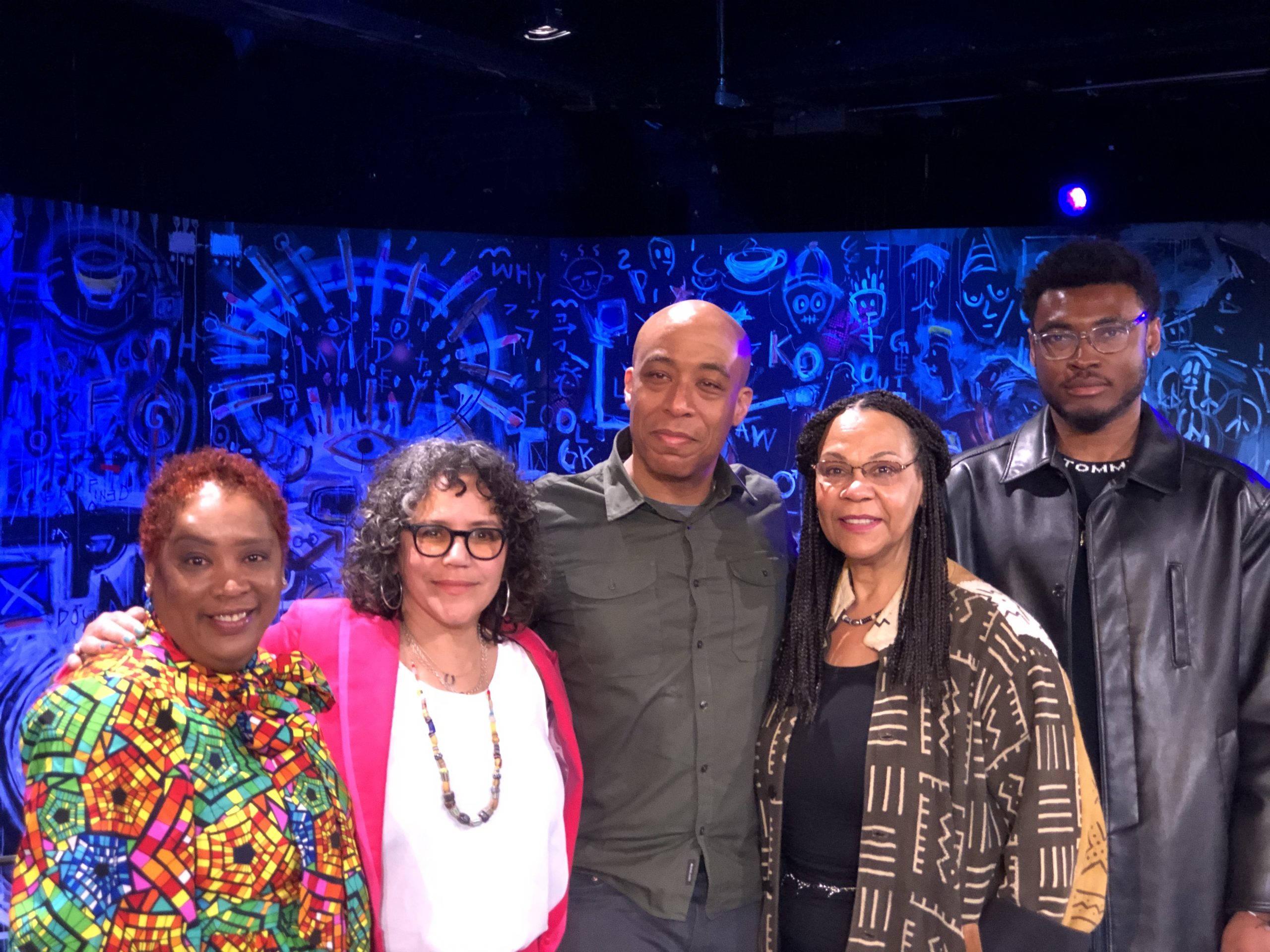Four Black Evanston artists came together to discuss and celebrate their craft, culture and passion on Saturday night at the Noyes Cultural Arts Center.

“That Art Thing We Do,” a panel discussion presented by Fleetwood-Jourdain Theatre, featured award-winning playwright and director Gloria Bond Clunie, culinary artist Chef “Q” Ibraheem, musician and composer Chris Greene and visual artist Sam Onche. Laurice Bell, executive director of the Shorefront Legacy Center, moderated the discussion Saturday as the artists opened up and shared their stories.
After a brief introduction from Tim Rhoze, artistic director of Fleetwood-Jourdain Theatre, Bell took the stage and brought out the panelists. She opened the discussion by asking the artists if they view themselves as business people working in the arts or artists who have to learn business.
“I would say the term ‘artist’ is the best term that describes me,” Onche said.
Onche briefly talked about how deeply his roots impact his work.
It comes into play by “making sure that I am aware of my heritage and how I can use that to essentially tell a story,” the Nigerian-born artist said.
When Clunie was asked the same question, she said she’s more focused on her art than anything else. She took it a step further and talked about the importance of art.
“Rather than just seeing art, we should be art,” Clunie said. “And I consider myself a Black artist because I think art springs from who we are. I was born in the segregated South.”
Identity, Clunie added, is almost inseparable from the work itself.
“Once you have a grounding in who you are, then one can, at least for me, interpret the rest of the world,” she said. “But with no grounding, then we’re just kind of floating above observing.”
Greene said finding a way to balance both the business and the art are important as a musician.
“The business parts can’t be ignored,” Greene said. “Many of my heroes were very astute about handling their business, making sure contracts were signed. It’s an unfortunate reality, especially as an independent artist. You have to think of these things.”
He added that the business and the art compete for his attention.
“I’ve had to jump back and forth on both sides,” Greene said. “If I’m working too much, as part of promoting things, then I always feel that the art starts to suffer. But then if I’m working and practicing writing I’m like, ‘Shoot, what the hell am I doing? I don’t have any gigs.’”
Ibraheem said she’s an artist who’s learning the business. Growing up, she was around so many artists and different art forms – from painting to music – that it gave her a sense of freedom.
“My canvas is a plate – I’m definitely an artist,” Ibraheem said.
Clunie said she’s “graced and blessed” to have accomplished what she has in her career.
“I think God has just led me into a lot of my life,” Clunie said.
The educator and director said that when she graduated from Northwestern University, she had no idea she’d end up teaching. Even though Clunie’s career path hasn’t always been easy, she said her family and support system have helped her through difficult times.
“Art sustains, and the community that is created through art creates light,” she said.
Toward the end of the conversation, Bell asked if the Black story has been fully told in the arts.
“I don’t think we’re in a space where we’ve had enough time and enough opportunity to tell the full story,” Ibraheem said.
In some ways, Clunie said, there has been progress, but there is still a lot of work to do.
“We have to reach back, educate and pull forward,” she said.
She added that if the Black community doesn’t “hold on, grab it and keep moving forward, it will disappear,” and all of the progress made will be lost.
“You gotta teach, you gotta preach, you gotta shout, you gotta pray, we gotta lot of things that we need to do, just to hold on,” she said.
During the closing remarks, panelists shared their final thoughts on the importance, influence and necessity of art.
“If you have a story,” Onche said, “you should tell that story. If you have an experience, you should share that experience to the fullest.”
Greene shared this thoughts on practicing the arts, at any stage in life, and the impact it can have.
“If there’s something inside you that you need to do – you may not be able to make it your job, but it’s something that you need to do – it’ll make you a better person. It’ll make the world a better place because you put it into the world. Please do it.”